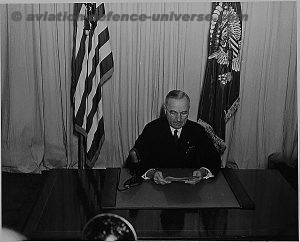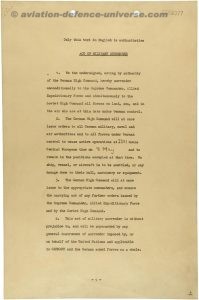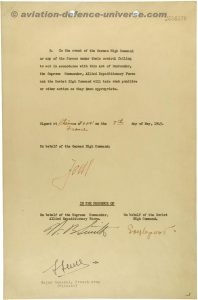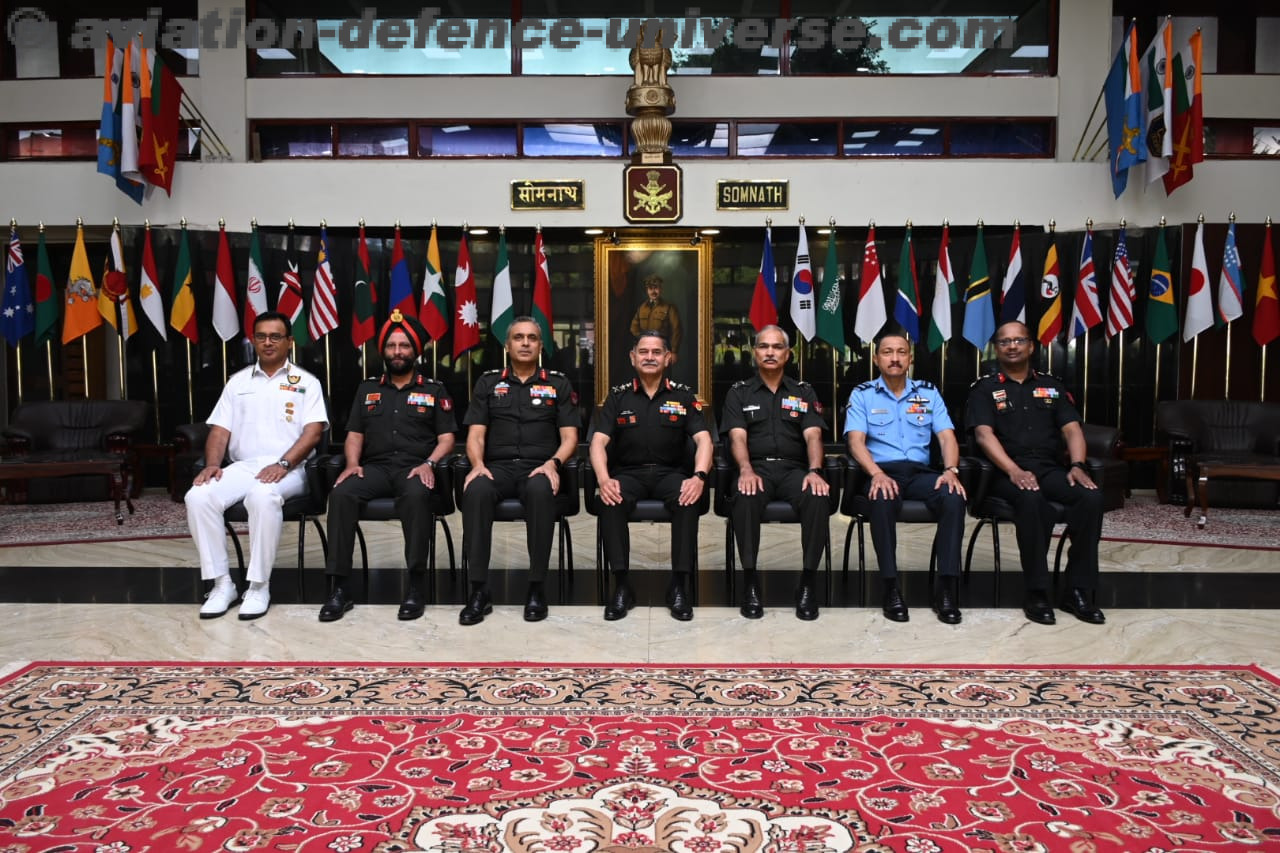
New Delhi. 08 May 2020. It was exactly 75 years ago on May 8th 1945 when President Harry S. Truman seated at a desk, before a microphone, announced the end of World War II in Europe.
The unconditional surrender of the German Third Reich was signed in the early morning hours of Monday, May 7, 1945 at Supreme Headquarters, Allied Expeditionary Force (SHAEF) at Reims in northeastern France. Present were representatives of the four Allied Powers—France, Great Britain, the Soviet Union, and the United States—and the three German officers delegated by German President Karl Doenitz—Gen. Alfred Jodl, who had alone been authorized to sign the surrender document; Maj. Wilhelm Oxenius, an aide to Jodl; and Adm. Hans-Georg von Friedeburg, one of the German chief negotiators. Lt. Gen. Walter Bedell Smith, SHAEF chief of staff, led the Allied delegation as the representative of General Eisenhower, who had refused to meet with the Germans until the surrender had been accomplished. Other American officers present were Maj. Gen. Harold R. Bull and Gen. Carl Spaatz.
After the signing of the Reims accord, Soviet chief of staff Gen. Alexei Antonov expressed concern to SHAEF that the continued fighting in the east between Germany and the Soviet Union made the Reims surrender look like a separate peace. The Soviet command wanted the Act of Military Surrender, with certain additions and alternations, to be signed at Berlin. To the Soviets, the documents signed at Berlin on May 8, 1945, represented the official, legal surrender of the Third Reich. The Berlin document had few significant changes from the one signed a day earlier at Reims.

At 02:41 on the morning of 7 May, at SHAEF headquarters in Reims, France, the Chief-of-Staff of the German Armed Forces High Command, General Alfred Jodl, signed an unconditional surrender document for all German forces to the Allies. General Franz Böhme announced the unconditional surrender of German troops in Norway on 7 May. It included the phrase “All forces under German control to cease active operations at 2301 hours Central European Time on May 8, 1945.”The next day, Field Marshal Wilhelm Keitel and other German OKW representatives travelled to Berlin, and shortly before midnight signed another document of unconditional surrender, again surrendering to all the Allied forces, this time in the presence of Marshal Georgi Zhukov and representatives of SHAEF. The signing ceremony took place in a former German Army Engineering School in the Berlin district of Karlshorst; it now houses the German-Russian Museum Berlin-Karlshorst.

At 10:00 on 8 May, the Channel Islanders were informed by the German authorities that the war was over. British prime minister Winston Churchill made a radio broadcast at 15:00 during which he announced: “Hostilities will end officially at one minute after midnight tonight, but in the interests of saving lives the ‘Cease fire’ began yesterday to be sounded all along the front, and our dear Channel Islands are also to be freed today.”
Following news of the German surrender, spontaneous celebrations erupted all over the world on 7 May, including in Western Europe and the United States. As the end of operations officially was set for 2301 Central European Time on 8 May, that day is celebrated across Europe as V-E Day. The Soviet Union celebrates Victory Day on 9 May, as the end of operations occurred after midnight Moscow time.
Although the military commanders of most German forces obeyed the order to surrender issued by the Oberkommando der Wehrmacht (OKW)—the German Armed Forces High Command—not all commanders did so. The largest contingent was Army Group Centre under the command of Generalfeldmarschall Ferdinand Schörner, who had been promoted to Commander-in-Chief of the Army on 30 April in Hitler’s last will and testament. On 8 May, Schörner deserted his command and flew to Austria; the Soviet Army sent overwhelming force against Army Group Centre in the Prague Offensive, forcing German units in Army Group Centre to capitulate by 11 May. The other forces which did not surrender on 8 May surrendered piecemeal.
All content is from National Archives USA.




















































































































